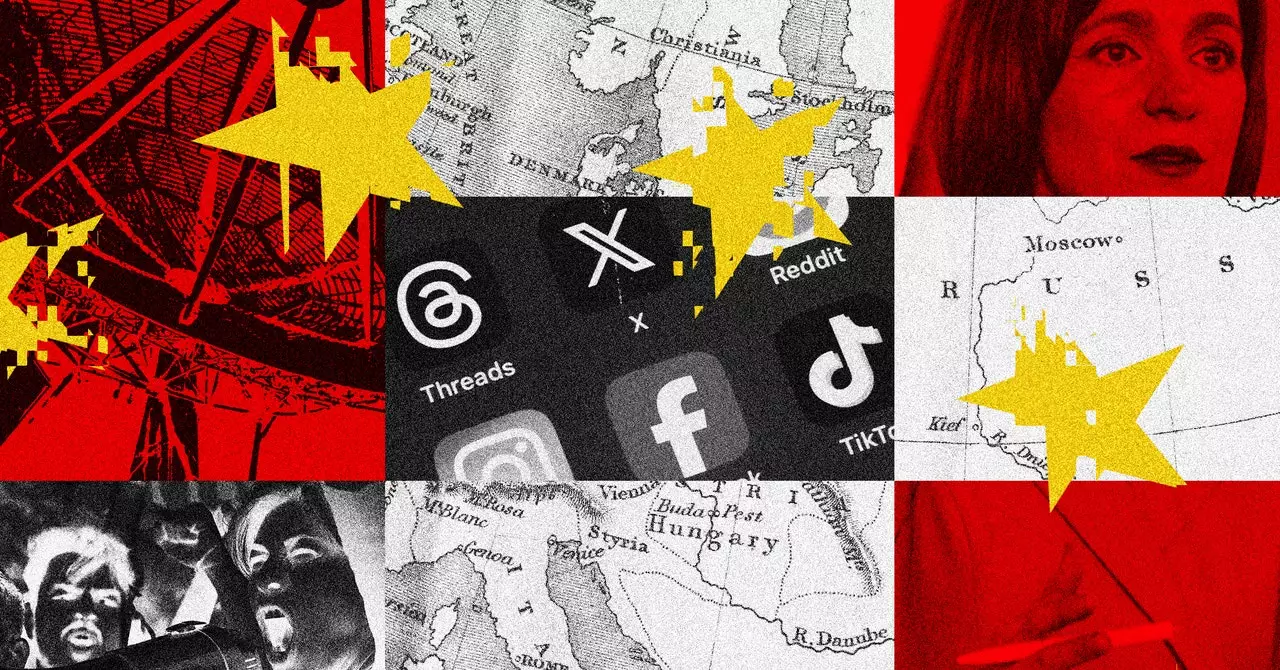In an era marked by the extensive influence of social media, the fusion of celebrity endorsement and political messaging carries unexpected implications. A striking example of this phenomenon emerged when Brian Baumgartner, best known for his role in the American version of *The Office*, became an unwitting figurehead in a campaign for political turmoil. His dubious call for the overthrow of Maia Sandu, Moldova’s pro-European president, serves as a potent reminder of how celebrity culture can be harnessed for dubious purposes. The video—in which Baumgartner, in fractured Russian, expresses solidarity with those looking to dismantle Sandu’s leadership—illustrates the troubling convergence of entertainment and manipulation in the political realm.
Moldova, a nation wedged between the European Union and Ukraine, has long been subjected to the specters of foreign interference, particularly from Russia. As the nation gears up for a significant presidential election and a referendum concerning EU membership, the stakes have never been higher. Disinformation campaigns, often fueled by external actors, are strategically employed to subvert democratic processes. The emergence of Baumgartner’s video, far from being an isolated incident, is a clear indication of how easily the delicate political climate in Moldova can be destabilized by orchestrated misinformation.
This situation shines a light on the role social media platforms play in amplifying divisive content. Reports indicate that the Moldovan digital landscape has been targeted by bots and algorithms designed to inflate politically charged narratives. This coordinated misinformation effort underscores the vulnerability of societies where digital interactions can profoundly shape public opinion and influence electoral outcomes—from political advertisements cloaked in anonymity to the rampant spread of misleading narratives.
Researchers have observed a disturbing pattern where social media platforms like Facebook and TikTok become breeding grounds for disinformation. Academic insights reveal that pro-Kremlin operatives have ingeniously exploited these platforms to fund advertising campaigns specifically designed to penetrate Moldovan communities. The astonishing figure of $200,000 generated from anti-government ads illustrates both the scale and resourcefulness of these operations.
Ana Revenco, the former interior minister of Moldova and current head of the Center for Strategic Communication and Combating Disinformation, has brought critical attention to these practices, labeling them as unprecedented in sophistication. According to Revenco, the escalation of Russian-affiliated accounts in the lead-up to the election reveals a troubling trend: dormant accounts are revived to orchestrate a wave of targeted disinformation. This not only threatens Moldova’s political integrity but serves as a cautionary tale for democracies worldwide facing similar threats.
Global Implications of Local Challenges
What is happening in Moldova should warrant concern beyond its borders. Revenco analogizes the situation to a broader vulnerability that holds true globally. The tools and tactics employed by disinformation campaigns can easily be adapted and utilized in varied contexts. In the interconnected world of digital media, lessons gleaned from Moldova’s experience expose the fragility of democratic processes against the backdrop of advanced disinformation strategies. As Moldova stands at a crossroads, the challenge remains clear: addressing the creators and conduits of misinformation is crucial in safeguarding the foundations of democracy. In an age where information is both a weapon and a tool for connection, the stakes have never been higher.

